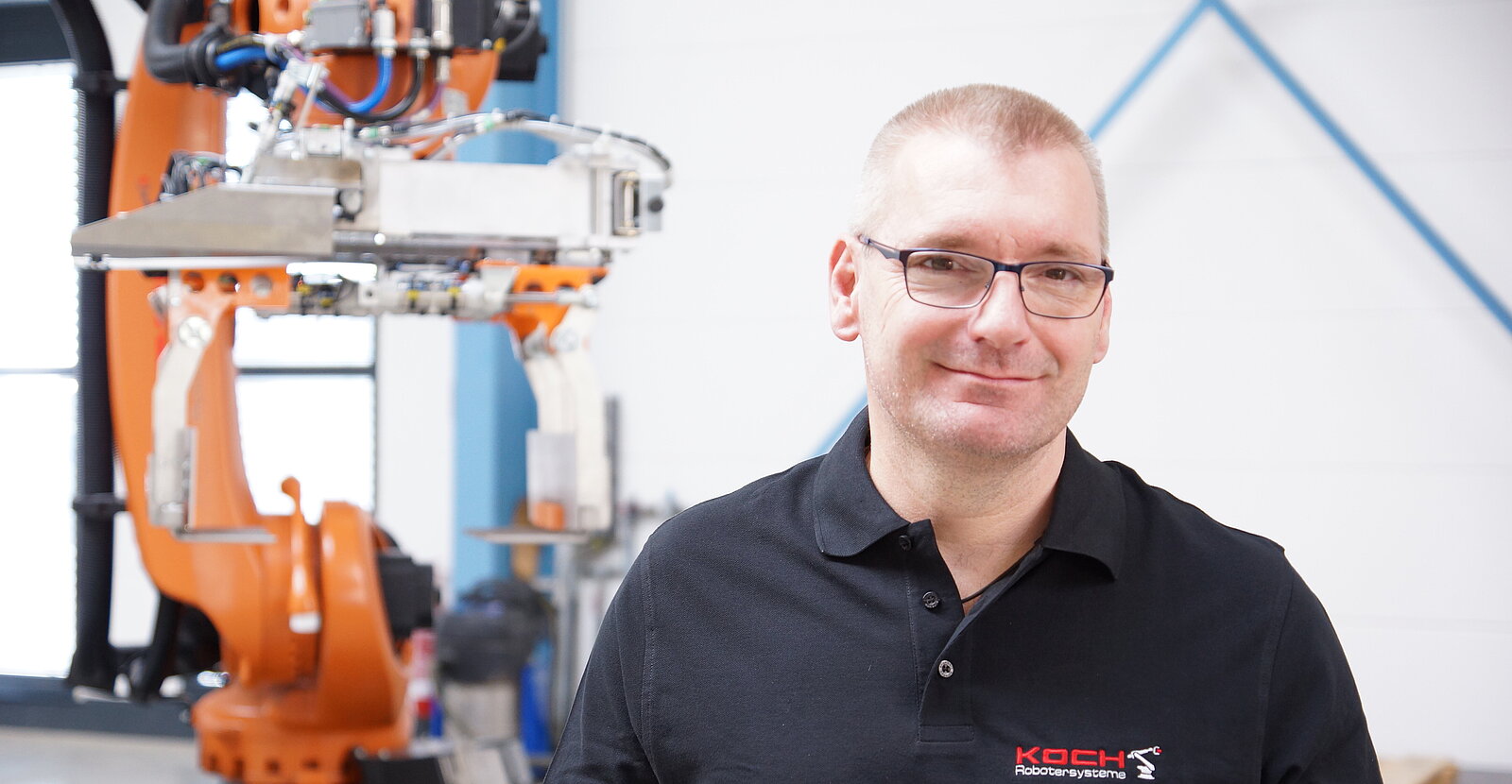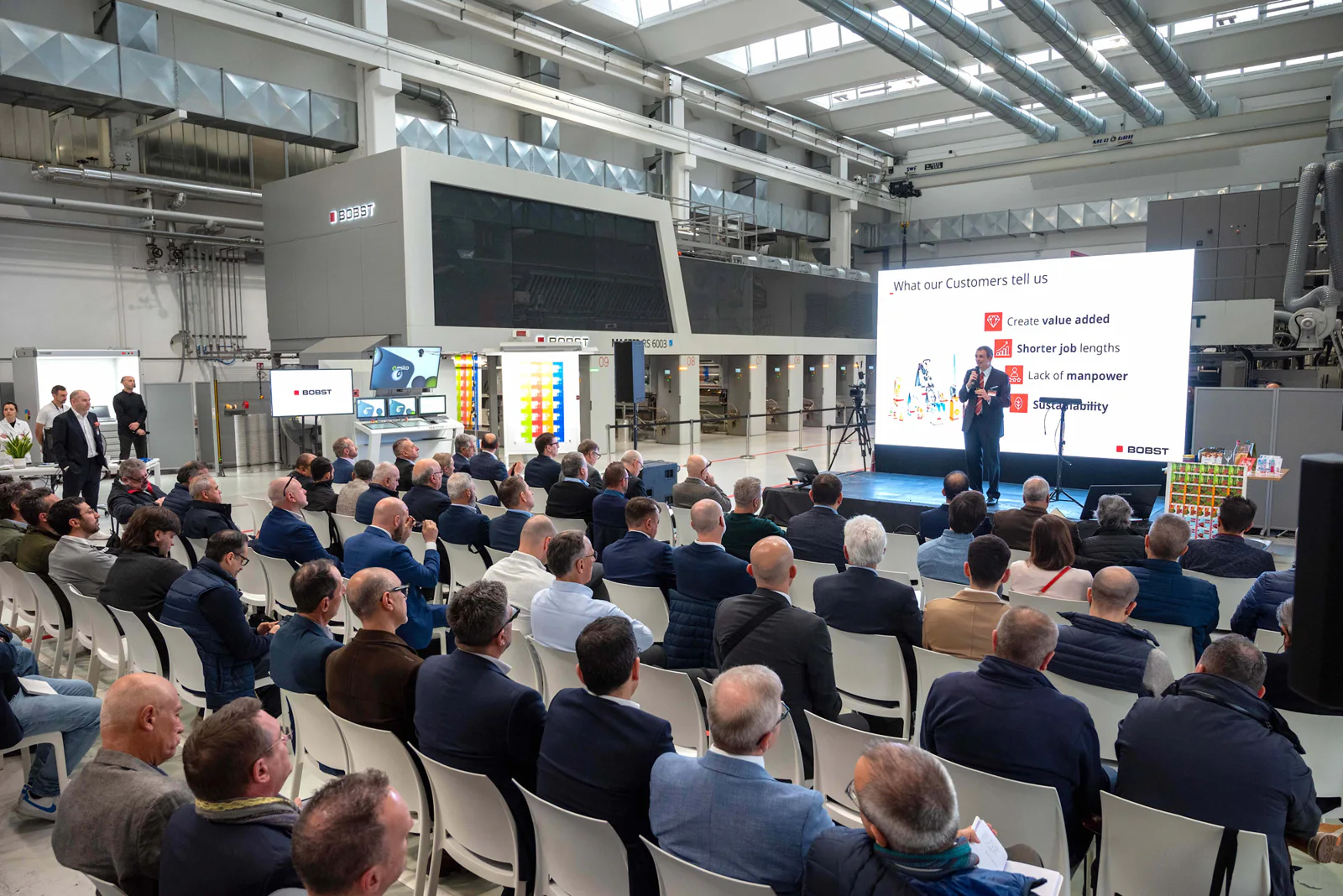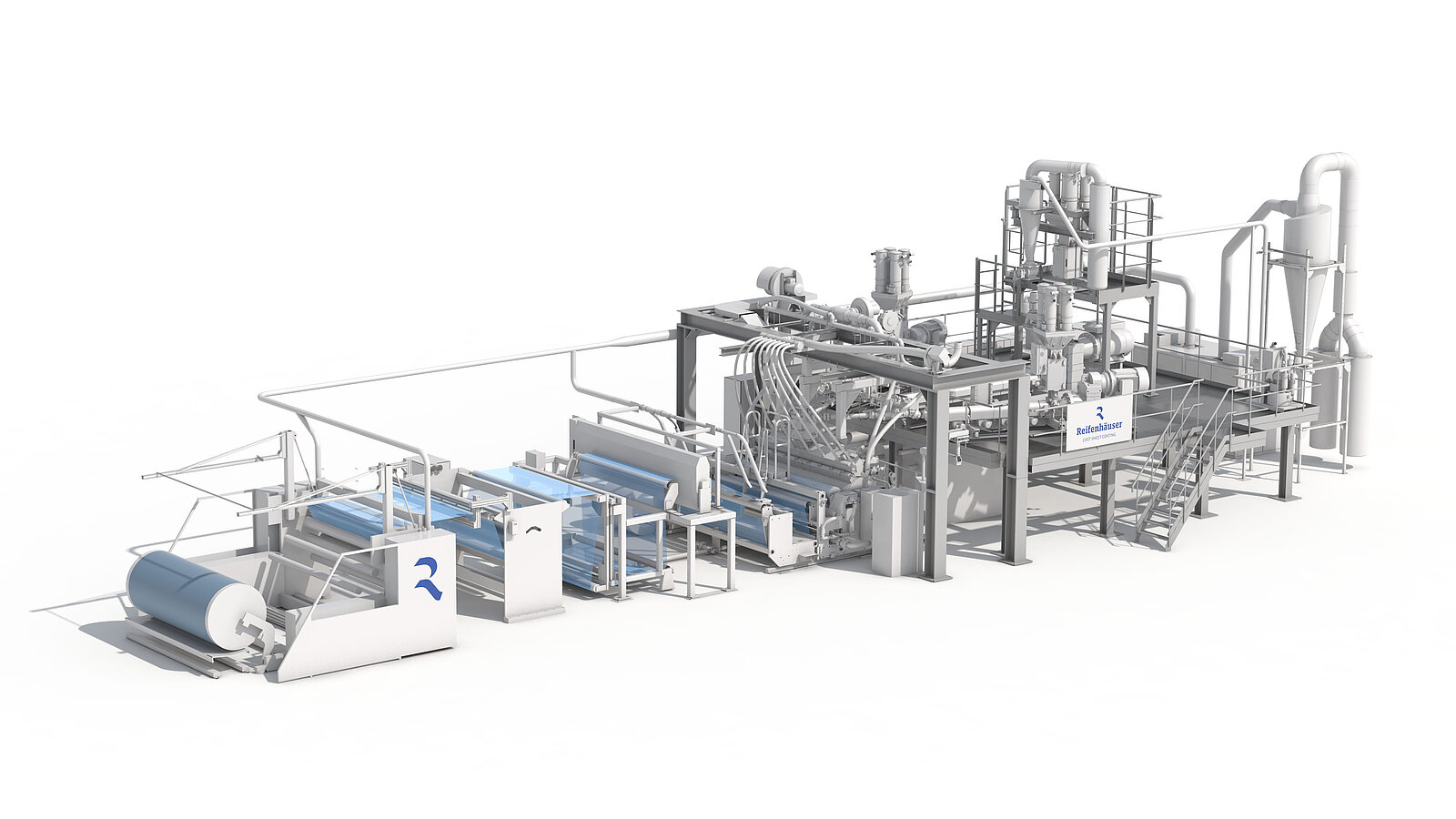Kai Höfer is Head of Service at KOCH Robotersysteme and provides information in an interview about the service spectrum, the special features and the importance of the human factor.
Mr Höfer, what do you think of this: a robot that maintains and repairs other robots?
The idea sounds appealing at first. But I think we will never be able to completely replace humans. Robots are always specialists in their niche. Humans are simply all-rounders who can take on any challenge. The combination of outstanding mobility and fine motor skills, perception and intelligence in an autonomous machine will not be possible in the foreseeable future. So even if the entire production plant is made up of robots, there will always be a human in between to keep things running. And people prefer to work with people.
So it is the human factor that makes working on and with robots work well?
You could say that. The relationship between people is just as important to us as the technology. There is a good working atmosphere – not only internally, but also with our customers. This allows us to learn and improve with and from each other. For example, we have a positive error culture at KOCH. Everyone is allowed to make mistakes. Mistakes happen. We admit our mistakes and correct them as quickly as possible, if necessary by working together. It is important to us that we learn from our mistakes in order to improve. And that is only possible if the interpersonal relationships are good.
Can you give us an overview of the main tasks and scope of the technical service provided by your department?
It is vital for our customers that their systems run reliably and efficiently. And if they do break down, they need to be back up and running as quickly as possible. Our service is structured around these requirements: ‘Maintenance’ is responsible for tasks such as maintenance and inspection, spare parts supply and plant safety. ‘Performance’ deals with upgrades and retrofits, performance optimisation and training. And then there is ‘Troubleshooting’. These are our problem solvers with remote and on-site service and our 24/7 hotline.
How does your service offering differ from that of your competitors?
We are different in three ways: comprehensive service from a single source, fast solutions and a modular service concept. This means that we take care of everything, whether the system is ours or someone else's. And we do it quickly, either remotely or on-site, and we also deliver spare parts quickly. We also offer flexible service packages tailored to our customers' needs.
You offer a ‘one-stop service’, especially for systems from other manufacturers. What services does this include? Do you also carry out repairs?
A single source means that we at KOCH Robotersysteme take care of everything. As a customer, I can contact our service department with any questions. For example, we have our own service programmers, electricians and mechanics who can deal with all technical requirements. If we reach our limits in the service department, our internal departments, such as design or electrical engineering and software, can help us. All this happens in the background, the customer is unaware of it and only has contact with our service employee.
When it comes to industrial robots, KUKA and ABB are the two main suppliers. Our service engineers specialise in both. This means that we can offer service and, of course, repairs for these robot types, regardless of which system manufacturer supplied them. In the case of mechanics and hardware, this is done according to the manufacturer's specifications. When it comes to software solutions, we familiarise ourselves with the programmes of other manufacturers. But because we know the robots and their programming languages, this is perfectly feasible and economical.
Our customer database also includes a large number of third-party products that we regularly maintain and repair. But we don't just do this for robotic systems; we are also happy to take on conveyor systems and other additional tasks.
How do you ensure that your services meet the individual needs of your customers?
We are close to our customers. We pride ourselves on the personal relationship we have with our customers. Our people know how important the systems are to our customers and put their heart and soul into their work. Most systems are always serviced by the same technicians, who know their ‘babies’ inside out and act accordingly and purposefully.
You also offer preventive maintenance as part of your service portfolio. How does this benefit your customers?
This regular maintenance and preventative servicing keeps systems operational and productive over the long term and greatly reduces unplanned downtime. And these regular checks are just as important for overall plant safety.
What technologies or innovations do you use in your service operations to improve plant performance for your customers?
We focus on our customers' equipment so that they are always up to date. After each customer visit, our service engineers also include suggestions for optimisation or preventive measures in their report. If the customer requests an increase in performance, we take a close look at the plant with our specialists. This can be as simple as adjusting processes, modifying existing designs, such as grippers, or adapting programmes. For more fundamental changes in technology, we offer retrofits and upgrades.
Smooth and efficient operation also requires well-trained personnel. Can you tell us a little more about the training service?
We offer two main types of training: operator training and maintenance training. We prepare operators for their daily work with individual training courses, either at our headquater in Dernbach, Germany, or on site.
Additionally, we offer practical training for maintenance and servicing. After all, well-trained maintenance personnel are key to reliable and smooth plant availability and minimal downtime.
Usually, training is done in groups of three up to a maximum of five technicians or employees. Experience has shown that this gives individuals enough space to ask questions, which simply makes the whole thing more efficient. Of course, we can also train individuals. Depending on the training required, this is carried out by our maintenance specialists or service programmers.
When new systems are handed over to the customer, training is carried out by the project team, as they are most familiar with the specific system conditions and operating requirements. Subsequent training is provided by our service team. Incidentally, our service team is also trained by the project team when the system is handed over. This approach also reinforces an idea that is very important to us: we see ourselves and our customers as one team.
What technologies do you use to make your service more efficient and effective?
It starts with a ticketing system that is tailored to the needs of our service and offers the possibility of customer integration. Then we have our ‘data glasses’, the KOCH Smart-Remote-Service. This software is constantly being developed and improved on with two partners. And we have developed KOCHnectivity especially for use by the customer.
What is KOCHnectivity?
It is a software that helps to optimise the performance of plants: KOCHnectivity provides a clear overview of the status of a system and enables a precise analysis of the production structures. Based on these results, we can make specific recommendations as to whether the system needs to be upgraded, modified or retrofitted.
How important is digitalisation in service and what solutions are you already using?
Digitisation is essential. If you don't move with the times, you will lose out! One example is remote maintenance: we have been offering this for many years and can access customers' systems and fix most malfunctions online. This saves a lot of time and thus money. These systems are constantly evolving and have become indispensable.
Let's stay with evolution: What trends or challenges do you currently see in the service area and how are you addressing them?
It is clear, that digitalisation will continue to increase. Customers want to be able to see what is happening with their systems in real time. The requested delivery times, for example for spare parts, and maintenance times will also continue to decrease. The example of Amazon shows what is possible, and our customers will expect a similar service. Then, of course, artificial intelligence will become a key issue, for example in terms of operation, operating instructions, spare parts identification and similar aspects of service. At KOCH, we have launched an ‘project AI’ to evaluate the possibilities and to use this technology ourselves and for our customers. This is an exciting and promising topic, and we are still at the very beginning.



